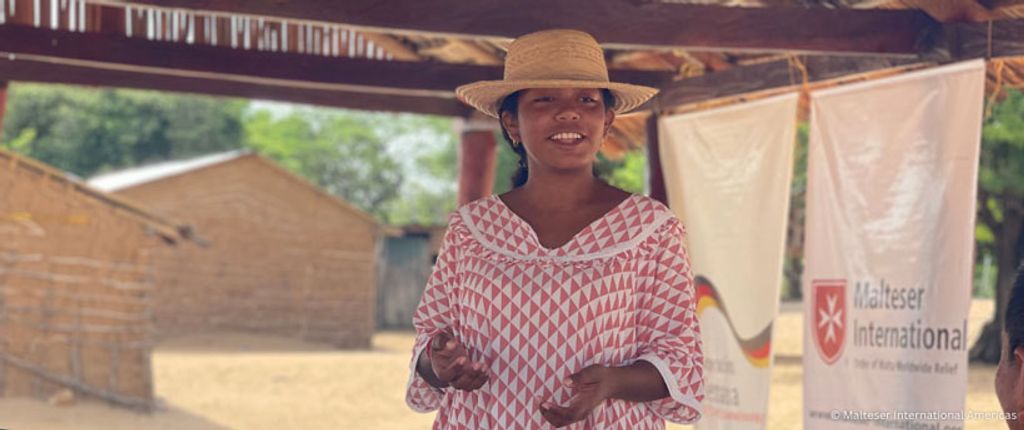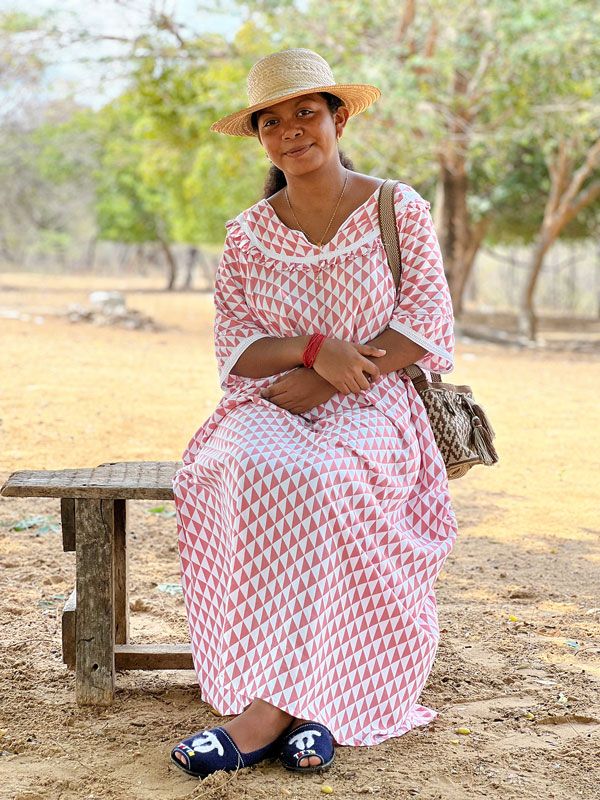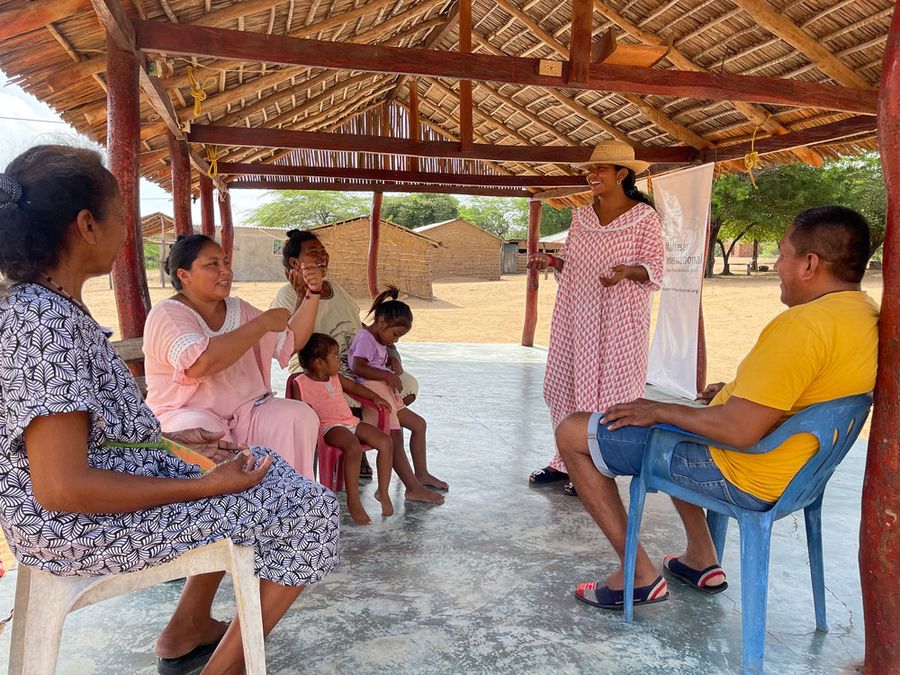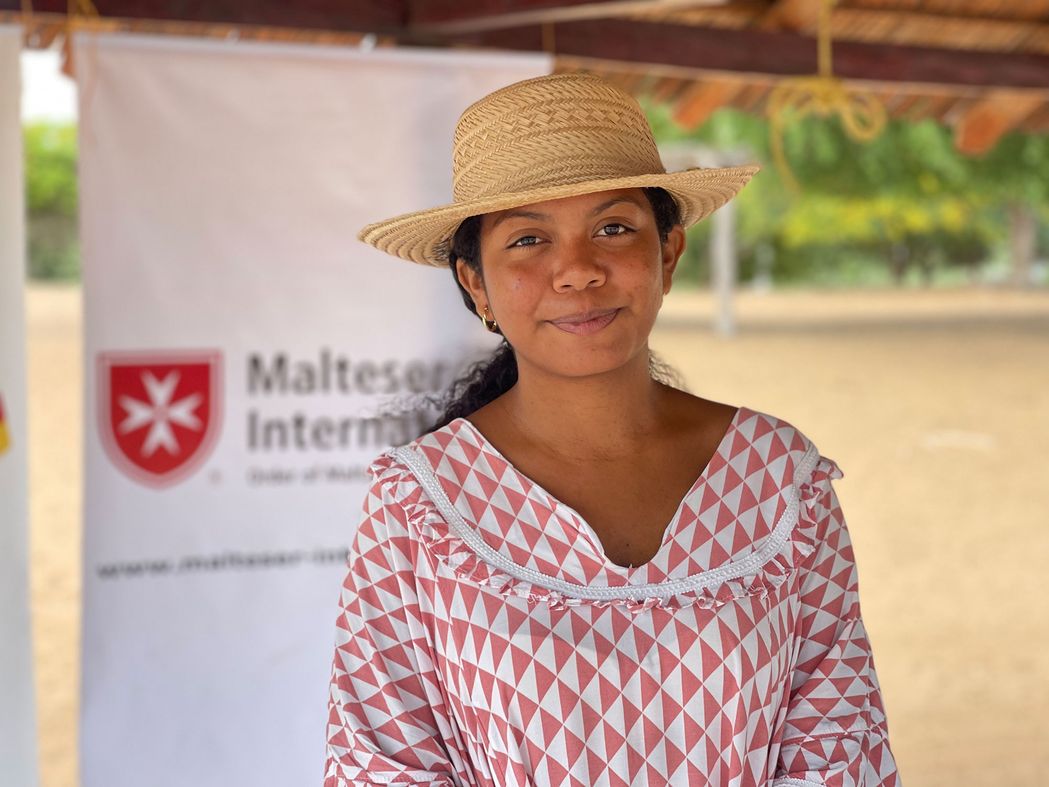
Eliana: A young leader shaping the future of her community

“In our culture, hierarchies are very important and we always respect the opinion of the elders. In general, we follow what they decide,” says Eliana Toro. The 18-year-old lives in Trilillamana, a Wayuu community in the rural coastal municipality of Manaure in the department of La Guajira in northern Colombia. When she speaks, everyone in her community listens to her, because, despite her young age, her deep interest in her community has led her to become a leader at just 18 years old.
Since she was a child, Eliana demonstrated a natural inclination toward leadership and an unwavering commitment to the well-being of her people. Those around her see in her an innate leader, capable of facing complex situations and being the voice of her community to the outside world. This voice is vital, as the Wayuu are an autonomous indigenous community that has suffered violence, displacement, exploitation, and discrimination for generations, some of which continues to this day. Their relationship with state institutions is more than tense.
Eliana's home community of Trilillamana, too, has little access to health services, education and other basic needs, making it difficult for residents to achieve an adequate quality of life. Due to the long distance between the communities and the urban areas, it is a great challenge for them to integrate into the Colombian healthcare system. In many cases, they lack the presence of the state or the necessary guidance to access the services intended for the population. This untenable situation jeopardizes the health of many community members, especially at-risk groups such as babies, young children, pregnant women and the elderly.
In 2022, Eliana learned about the offer of the program “Development of dialogue structures for reform in rural healthcare” – MAP Salud. This program invited Wayuu young people, between 18 and 30 years old, to train for the “Community Health Workers” diploma.
This program was developed by Malteser International Americas, with funds from the Federal Ministry of Economic Cooperation and Development of the government of Germany, and with the support of the local partner Ipsi Anashiwaya, in charge of generating a dialogue with the communities for the implementation of the program activities.
A total of 50 young people, including Eliana, from 20 rural and ethnic communities in Riohacha and Manaure, La Guajira, completed the diploma. During the course, they were trained in promoting health care, disease prevention, management of technology tools and health information, and human rights and affiliation processes of the health system for the migrant population of Venezuela and Colombians returned to host communities.
Youth as catalysts for change

Young “Community Health Workers” like Eliana Toro help to enable more people from the Wayuu communities to benefit from health services. Their role is to act as a link between the community and government health service providers, facilitating access to medical services and ensuring community participation in decision-making on health issues. “My goal is to build a bridge between the Wayuu culture and external service providers, promote mutual understanding and improve people's access to important resources,” she says.
Language plays a crucial role in her function as a mediator: many members of the community speak only Wayuunaiki, the language of the Wayuu. Eliana Toro grew up bilingual and can easily communicate in both languages. And when she speaks, you can immediately tell that she is passionate about her work. “It's important to me to ensure that community members clearly understand what's going on with their health and other important issues. I also work to sensitize the community to the benefits of Western medicine, as they are often unfamiliar with it. Gaining the trust of the elders was a process that took time and effort - a step-by-step approach. In my case, however, I managed to show them that I could live up to the responsibility, and over time I gained their respect.”
“Inspired by the work and all the processes that I learned about at Malteser International Americas, I started studying Biology at the University of La Guajira. I knew that my focus would have to be this, research and preservation of life.”
Eliana Toro

Eliana is aware that she and her community are only at the beginning of their journey. Today, she feels proud of how her family listens to her and follows her advice and instructions. In her role as a link between the community and the health centers, Eliana Toro currently looks after 40 families. She wants to continue her commitment to her community. Her choice of further studies, too, was also influenced by the project: she has been studying biology at the University of La Guajira since 2024, inspired by the work and all the processes she has come to know as a “community health worker”.
Eliana’s story seeks to recognize the work of those young people who, living in rural, indigenous and difficult-to-access areas, believe in themselves.
This text is based on an article by Malteser International Americas from August, 2024.








